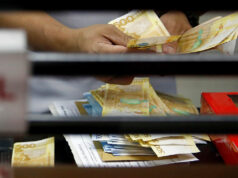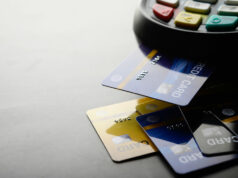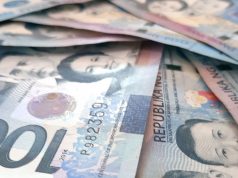Polymer bills to be circulated starting April 18

THE trial circulation of P1,000 polymer bills will start this month, with the central bank assuring the notes have security features to prevent counterfeiting.
Bangko Sentral ng Pilipinas (BSP) Governor Benjamin E. Diokno said the notes will be circulated starting April 18.
“People can have it through over-the-counter transactions. In six months’ time, you will see it through the ATM (automated teller machines),” he said in a virtual briefing on Thursday.
Mr. Diokno said ATMs will be configured to include the P1,000 polymer bills as they will be circulated alongside the current notes.
“It (trial circulation) could be six months or less. We expect that there will be competition among banks. So we don’t expect this to be done 100% in six months or one year,” he said.
The P1,000 polymer bills were presented to President Rodrigo R. Duterte on Wednesday evening. The trial circulation involves 10 million pieces of notes.
Sarah Severina Curtis, deputy director of the BSP’s Banknotes and Securities Production Management Department, said the design of the polymer bills has security features as given P1,000 bills are the highest denomination, making them a target of counterfeiters.
The front design of the bill is a Philippine eagle, setting it apart from existing P1,000 notes that feature World War II heroes Jose Abad Santos, Vicente Lim, and Josefa Llanes Escoda.
Also, on the front side of the bill is a sampaguita, while the Tubbataha Reefs Natural Park, South Sea Pearl, and T’nalak weave are on the reverse side.
The central bank pushed to test polymer bills to see if the benefits of using the material seen by other central banks will also be seen in Philippine conditions.
Polymer bills last at least 2.5 times longer than paper banknotes, given their resistance to water, oil, dirt, and general wear and tear.
“Their extended lifespan makes polymer banknotes more cost-effective in the long run. They can also be recycled into other useful forms, such as compost bins, building components, furniture and other household products,” the BSP said. — LWTN



